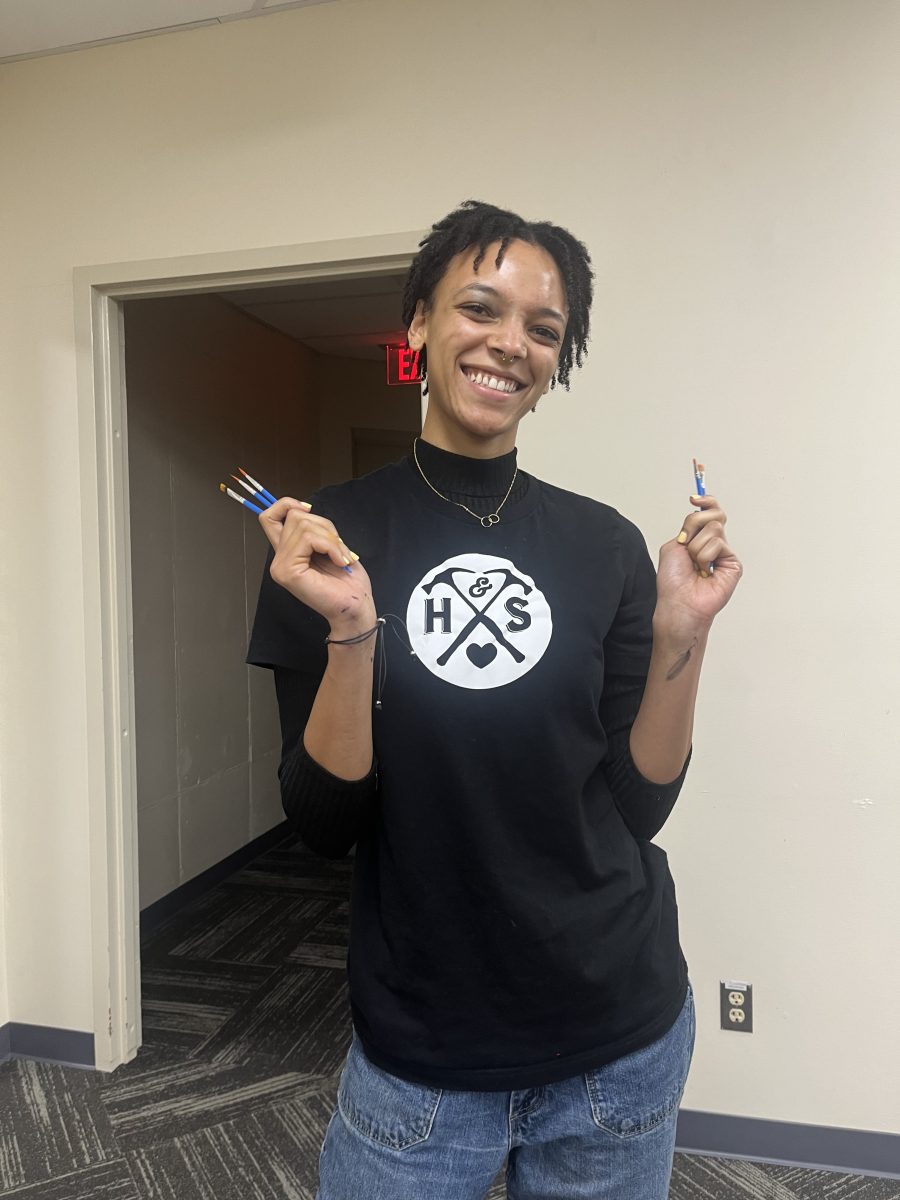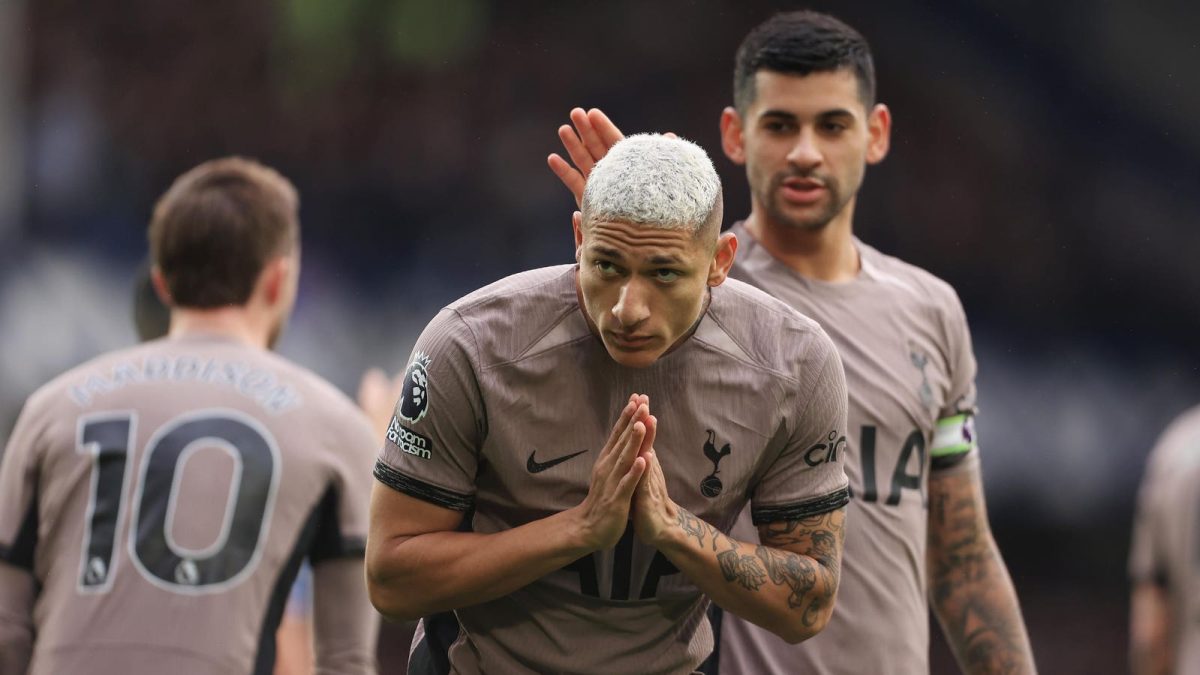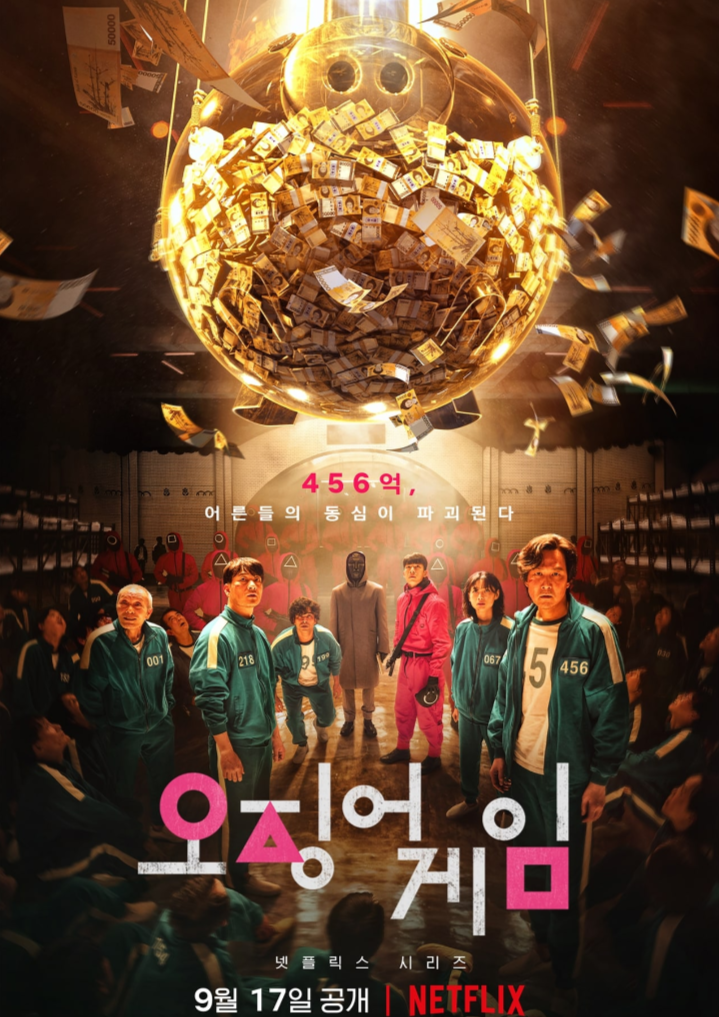By Aisha Sowe
From K-pop sensations to emotionally hitting dramas, Korean media has taken the world by storm these past few years. Korean dramas in particular are far different from any western television shows. One of those dramas that have been the talk of the town since its release date is Netflix’s new hit series Squid Game.
Squid Game is different from most K-dramas being that the show is a thriller. The show, directed by Hwang Dong-hyuk, revolves around participants of the popular Korean children’s game from the 70s and 80s, but with a dark twist. 456 players signed up to play six games in order to win ₩45.6 billion (about $38.7 million) in order to relieve themselves from their personal financial burden. Only one player gets the chance to claim the cash winning prize, leaving the rest of the participants to die trying.
The thrill, action, and suspense keep the plot going, leaving viewers to continue to watch the show as the story unfolds. The main theme that Squid Game conveys in the storyline is capitalism and the struggle for working-class citizens to find survival without having to worry about money. In the end, the show displays how the rich tend to be on top of the poor and have every opportunity to help those in need, yet choose to select over 400 people in South Korea to compete for billions of dollars.
Originally writing the script in 2008, Hwang had pitched the series for 10 years before the show was able to be picked up by Netflix. Hwang wrote, produced all nine episodes without a team. While developing the show, Hwang read mangas such as Battle Royale, Liar Game, and Gambling Apocalypse: Kaiji which were some of the inspirations for the show.
When speaking about his ideas, Hwang states in a Variety article, “I wanted to write a story that was an allegory or fable about modern capitalist society, something that depicts an extreme competition, somewhat like the extreme competition of life. But I wanted it to use the kind of characters we’ve all met in real life.” The characters in Squid Game deeply reflect what Hwang wanted to convey in the show.
The main character, Seong Gi-hun (Lee Jung-jae) enters the game to pay his debts. He is a divorced father who tries what he can to help his daughter as well as supporting his elderly, yet ill mother. He gambles in order to provide as his source for making money. His childhood friend Sangwoo (Park Hae-soo) joins Squid Game as the head of an investment team at a security company that is in hot water for stealing money from clients.
Other characters include North Korean defector Kang Sae-byeok (Jung Ho-yeon), a terminally ill senior Oh Il-nam (O Yeong-su), gang member, Jang Deok-su (Heo Sung-tae), Pakistani migrant worker Ali Abdul (Anupam Tripathi), supposed single mother, Han Min-yeo (Kim Joo-ryung), and police officer Hwang Jun-ho (Wi-Han-joon), who sneaks into the game as a guard to search for his missing brother.
As viewers continue to watch the show, we get a glimpse of how each character acts in order to claim the money, but also trying to survive. These players go through simple games from their childhoods such as Red Light, Green Light, and dalgona candy game, that turn out to be gruesome in order to achieve the cash prize, which to them is survival. The games show how people can become competitive in a capitalist society. Some of the players such as Gi-hun and Deok-su have debts to pay off, other players such as Sae-byoek and Ali are trying to provide for their families due to situations out of their control. The games they play go to show that people will do anything for money for the sake of getting out of their financial struggles.
The show has reached the #1 spot on Netflix in over 90 countries and is now the most-watched series on the streaming platform. Overall, the show is worth the hype as Hwang depicts the reality of class and capitalism through a fictional lens. With a cliffhanger ending, fans are hoping for a season two to be able to expand the story. Squid Game is 9.5/10.



















